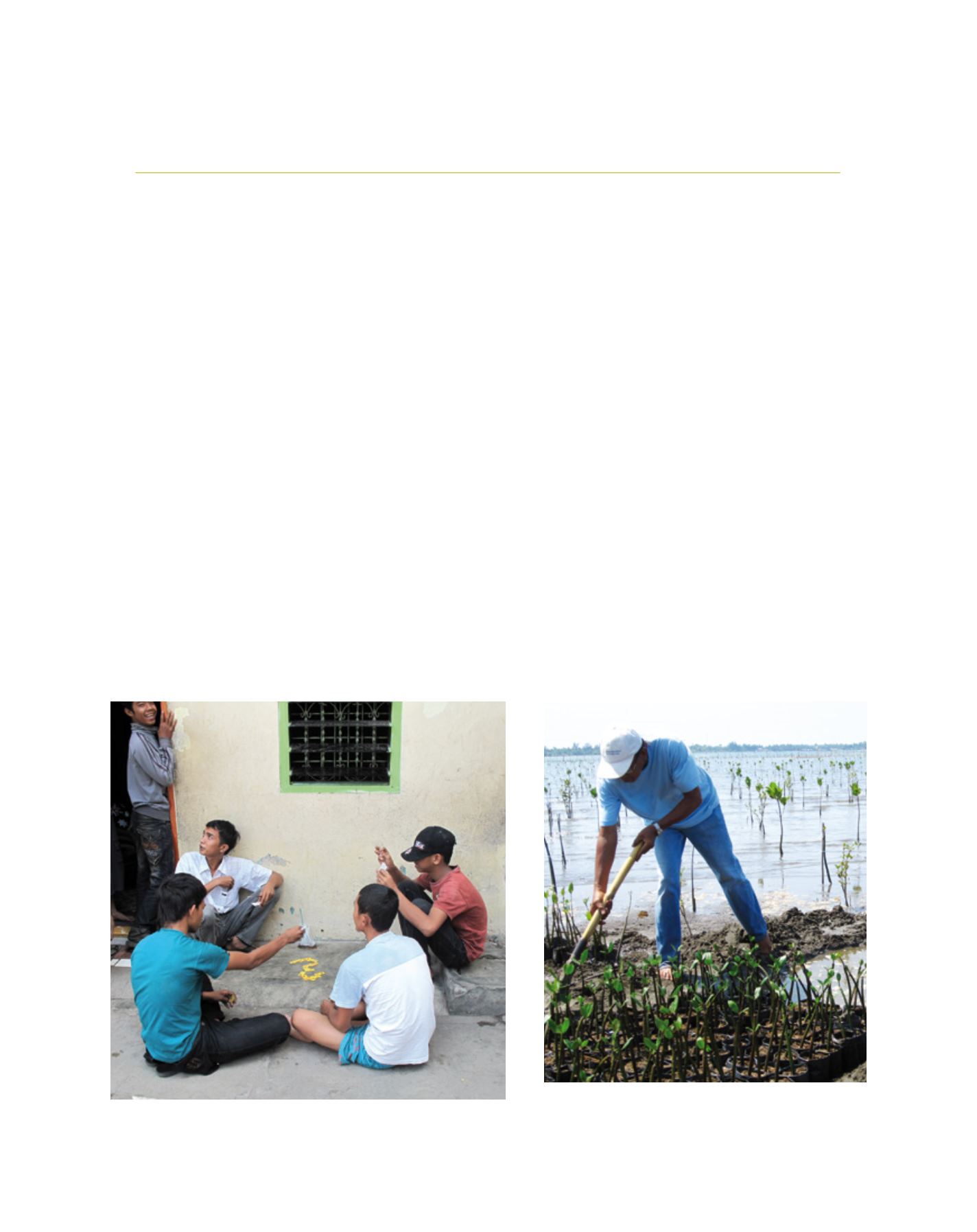

[
] 160
Helping people take control of their destiny
Hassan Ahmad and Siti Sayadi, Mercy Relief, Singapore
E
ducation policymakers and implementers often promise
that education will bring about a better future for those
who embrace it. Yet in a Sumatran province, more than
100,000 university graduates are unemployed. What are the
effects on these unemployed graduates who have invested time,
money and hope in pursuit of that better future?
Education initiatives provide a level of expectancy aimed at
capacity-building and sustainability, empowering beneficiaries to
transform their environment for a better quality of life. They also
provide rural communities with the psychological tools to under-
stand, appreciate and acknowledge other peripheral developmental
requirements to change the conditions of their lives. Therefore
given that education is both the means and the deliverable to attain
sustainable development, it is imperative that humanitarian imple-
menters understand the primary needs and outlook of rural and
disaster-affected communities in assessing their ability to appreci-
ate and apply education to their lives.
Mercy Relief adopts an innovative, socially inclusive perspective
on education for sustainable development, with a thematic emphasis
on capacity-building at the community level, whilst complement-
ing each country’s own educational investments and
national policies.
Education programmes foster a learning culture in
communities, empowering them to make their own
choices and decisions for their developmental needs
during peacetime and in the aftermath of calamity. As
a relief and development organization, Mercy Relief
sees education as the catalyst that helps communi-
ties to become the uplifting force behind their own
destiny. Therefore education programmes are imple-
mented with expansionary and pre-emptive strategies
for longer-term development, including disaster risk
mitigation philosophies.
Immediate versus longer-term needs
Having served disaster-stricken, impoverished and
disadvantaged communities in 19 countries over the
last seven years, Mercy Relief have seen that in these
communities, immediate, subjective, simple personal
needs prevail over longer-term or less urgent commu-
nal needs.
Sumatra, Indonesia – Unemployed graduates, who have invested their time and
money, now bored and frustrated – a potential recipe for social problems
Zambales, Philippines –Mangrove planting for coastal rehabilitation and
protection leads to enhanced livelihood output for fishermen and coastal
communities. Parents can now afford to send their children to school
Image: Mercy Relief
Image: Mercy Relief
















